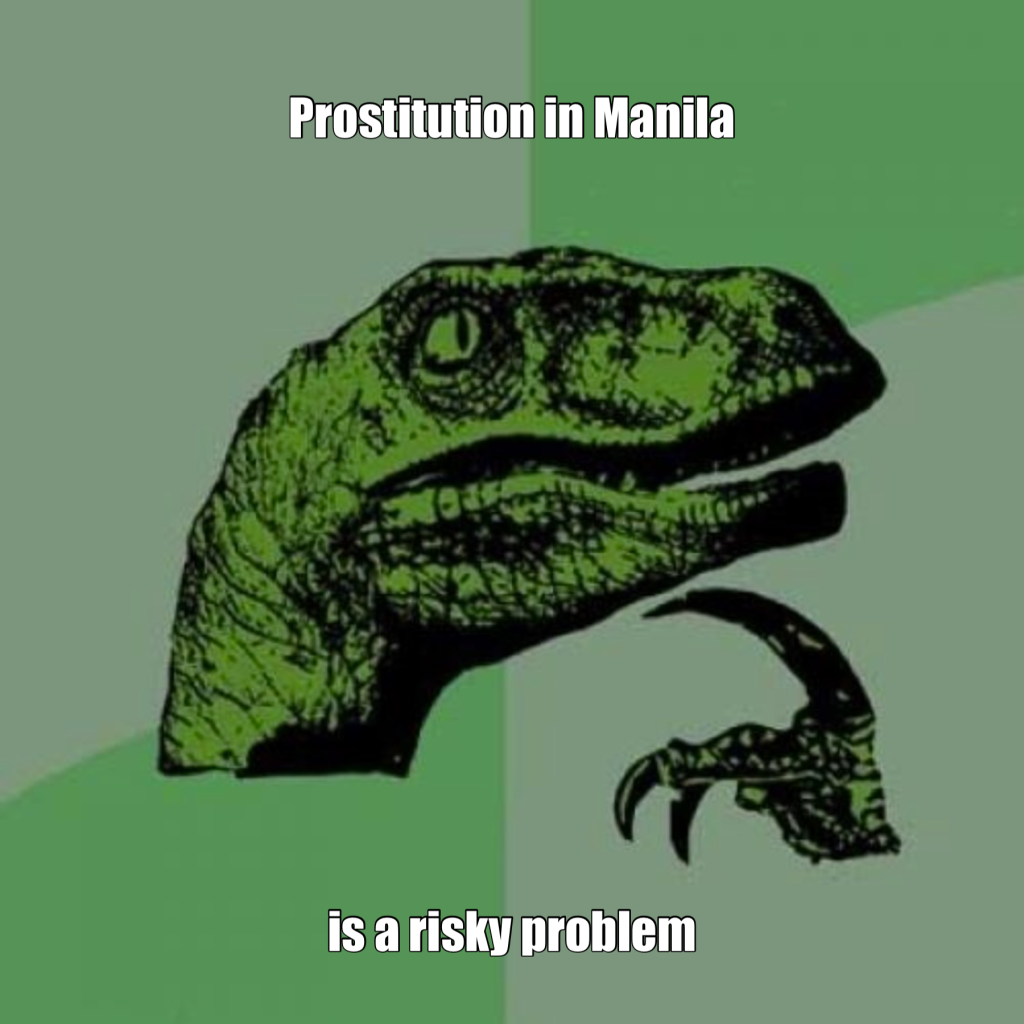The beautiful city of Manila is known for its scenic views, hospitable people, and rich culture. However, there is a dark side — prostitution in Manila. Prostitution is illegal in the Philippines but despite this, it’s still a prevalent issue that persists in various places, particularly in the red light districts. As a tourist, it’s essential to know the dangers of prostitution and how to stay safe during your visit to Manila.

Prostitution in Manila — what are the main issues?
Health risks
Engaging in sexual activities with sex workers poses health risks, such as sexually transmitted diseases, specifically HIV. In 2019, the HIV rate in the Philippines was 10,518 cases, and most of the cases came from people who get engaged in unprotected sex with sex workers. Health professionals advise against engaging in sexual activities with sex workers as it puts one’s health at great risk.
Possibility of scams
Some sex workers tend to scam their clients to earn more money. Not all sex workers are who they say they are. It is essential to do background checks before engaging in any activities. One method of avoiding scams is not to entertain approaches from strangers you do not know, let alone engage in sexual activities with them. This is one of the dangerous aspects of prostitution in Manila.
Physical safety
Most prostitutes are vulnerable and have few or no rights. Many are forced into prostitution, while others are in it because of financial problems. Since prostitution in Manila is illegal, there is not much protection available for sex workers. This makes them an easy target for violence and abuse. Likewise, clients who frequent these establishments may face physical harm from drunk or intoxicated people.
Legal penalties
Although prostitution in Manila may seem rampant, soliciting prostitutes is illegal in the Philippines . Most people caught with soliciting undergo legal sanctions, which can be severe. Still, some manage to escape from police stations by bribing officials, resulting in the vicious cycle of corruption. As a tourist, it is best to avoid such activities and to comply with the laws of the land.
Here are some key details about the laws on prostitution in the Philippines:
- Prostitution is illegal in the Philippines under the Revised Penal Code. The specific law is Article 202 which criminalizes “women who, for money or profit, habitually indulge in sexual intercourse or lascivious conduct.”
- The law imposes fines and prison sentences on those found guilty of prostitution. The prison term can range from 6 months to 6 years. Fines can be up to 6,000 pesos.
- This law against prostitution was enacted in 1930 under the Revised Penal Code of the Philippines.
- In recent years, some advocates have argued that this law should be revised as it targets and criminalizes the women involved in prostitution, rather than the people who profit from and promote the industry such as pimps and traffickers. There have been proposals to decriminalize prostitution in the Philippines, but no major reforms have been passed so far.
- Enforcement of anti-prostitution laws remains active, especially in periodic police crackdowns on red light districts. However, prosecution and conviction rates are low compared to the estimated number of people involved in the sex trade.
Ethical considerations
Prostitution objectifies women, men, and members of the LGBTQ+ community by reducing them to sexual commodities. As responsible global citizens, we should avoid activities that promote a toxic culture that undermines the human rights and dignity of people.
Prostitution in Manila is an issue that needs addressing as raising awareness can prevent the harm it causes. There are estimated to be over 100,000 sex workers in Manila, many of whom are victims of sex trafficking, recruited from poor rural areas with false promises of jobs and opportunity in the city. Once in the red light districts, these women and young girls are subjected to horrible abuse and have no means of escape.
“We see far too many young women beaten and coerced into this work against their will. It is heartbreaking,” said Dr. Celia Carlos of the Women’s Crisis Center in Manila.
Advocates say that increasing programs to help sex trafficking victims, providing more educational and job opportunities for at-risk girls, and cracking down on human traffickers are key to helping alleviate this problem. They also emphasize the need to decriminalize prostitution so that law enforcement efforts can focus on those exploiting these women, not the victims themselves. With greater public knowledge of the dark underbelly fueling much of Metro Manila’s sex trade, there is hope that solutions and protections can prevent more innocent young lives from being ruined.
The ongoing issue of prostitution in the Philippines has also sparked much debate, with advocates calling for reforms to protect sex workers from exploitation.
“We need to revise policies that criminalize victims of sex trafficking and leave them without legal recourse,” said Senator Risa Hontiveros. She proposed legislation that would provide more social services to women in prostitution while cracking down on human traffickers and others who profit from the sex trade.
However, Philippine National Police Chief Archie Gamboa stated that while they aim to help trafficking victims, “Prostitution is still against the law, and it is our duty to enforce those statutes.”
As the discussion continues, many hope tangible solutions will emerge to tackle this complex problem in a way that brings safety, justice and dignity to all affected. With cooperation between lawmakers, police, health workers and advocacy groups, progress could be possible in the future.
Do you agree with this article? Post a comment below!


Leave a Reply